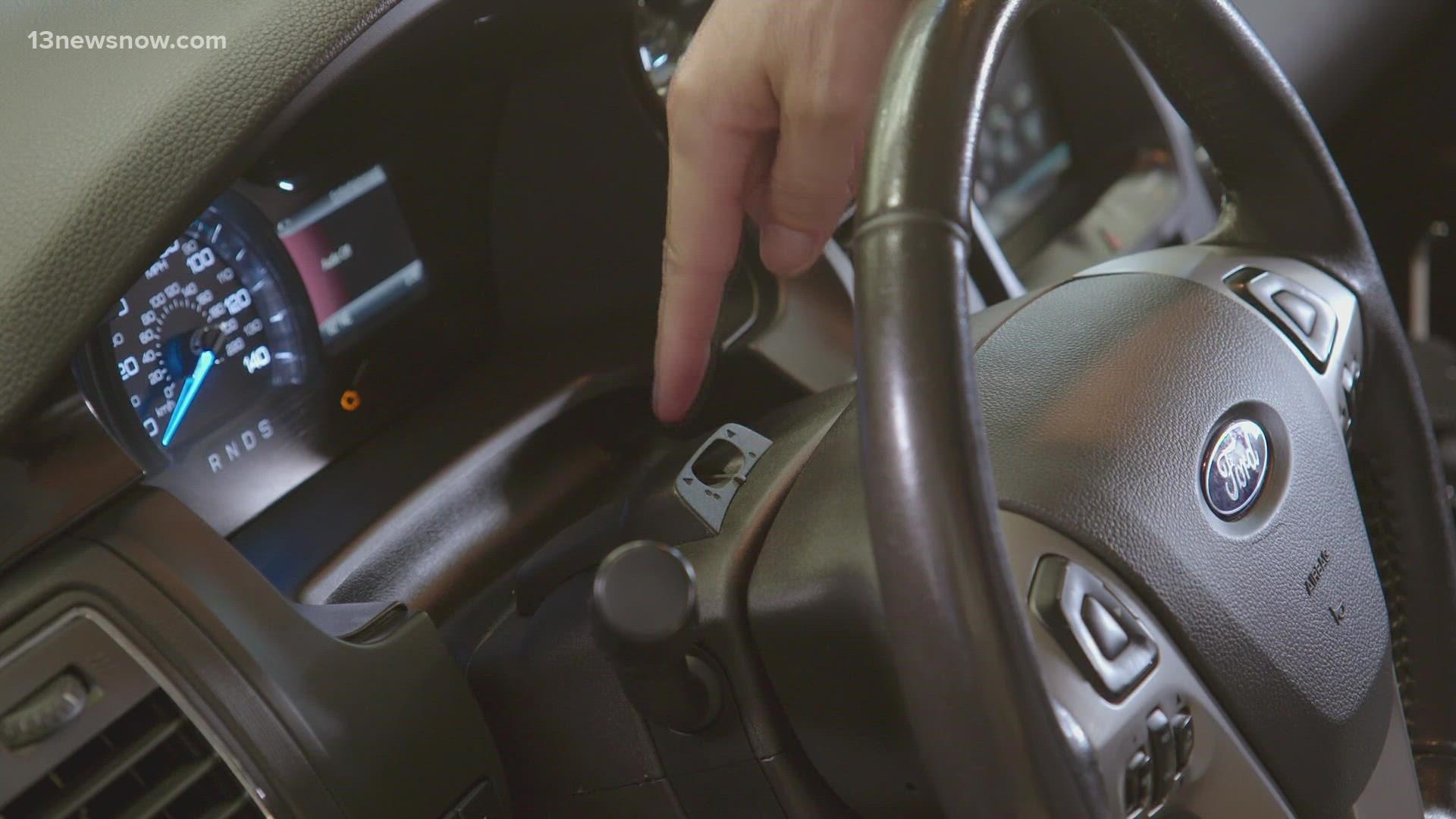NORFOLK, Va. — Imagine a world without drunk driving. It might seem impossible, but a new technology created in a partnership with the Virginia Department of Motor Vehicles is getting close to making that a reality.
In three to four years, cars could come with a special built-in feature to detect a driver’s blood alcohol content.
“In 2020 Virginia alone reported 6,624 alcohol-related crashes,” said Virginia DMV Commissioner Richard Holcomb.
Last year the careless choice to drive drunk took 272 lives across the Commonwealth.
“As we celebrate the holidays, remember the countless Virginians whose lives are never going to be the same,” Holcomb said.
Holcomb said a new technology is closer than ever before to lowering those deadly numbers. On Wednesday, he announced truckload carrier company Schneider is trying out the blood alcohol measurement system in some of their big rigs.
The system is created through the Driver Alcohol Detection System for Safety (DADSS) program.
“It’s absolutely a new milestone,” said Automotive Coalition for Traffic Safety’s Rob Strassburger. “We are deploying our most advanced breath prototype in Schneider vehicles. Each one of those vehicles is going to rack up about 100,000 miles in a year.”
Strassburger said the trial will test the system to the max, bringing it closer to widespread use in all cars.
“An opportunity to do a lifetime's worth of testing in a short amount of time under extreme conditions,” Strassburger said.
Officials said the system can measure the alcohol in a driver’s blood in less than a second. They said it would pull the driver’s breath into built-in sensors located either in the driver's side door or steering column. If their BAC is too high, the car won’t start.
“A car manufacturer might decide the car can start but it won’t be able to move, so you can charge a phone, call a cab,” Strassburger said. “Whereas other manufacturers might be more comfortable if the vehicle didn’t start.”
Strassburger said the technology should hit showroom floors around 2024 or 2025. He said educating the public is a critical next step.
“I am very confident that we will develop highly effective technology, but if it’s not used, if consumers pushed back, if they are motivated to defeat it, we haven’t changed anything,” Strassburger said.
Officials said the Schneider truckload carrier company will start using the blood alcohol system in eight of their cabs in 2022.
Officials said James River Transportation also tested the system in some of their vehicles.

